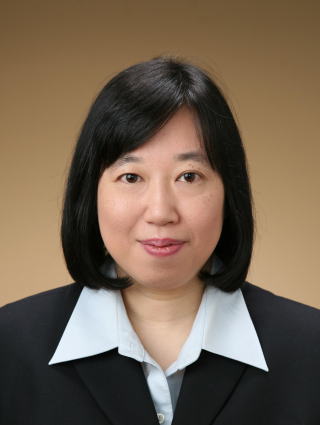Research Overview (Japanese follows)
The main research theme is to understand the structure of knowledge community based on an empirical approach, and re-design the organization and interaction among humans, computers including agents.
For example, to govern behavior and ensure compliance, to maintain discipline, to keep cyber security and privacy safe in smart cities, what kind of societies/communities should we design on the digital city? For sustainability of the communities, what types of strategies or rules and policies to undertake in cooperating against other people in community or out of community?
From this point of view, we focus on the points of contact with theoretical research in social sciences including business sciences and try to approach the understanding using actual observed data via the field practice and simulations.
In the process of the empirical studies, we are developing a computational model and system as a new analysis tool by applying computer science techniques. These research systems can deliver a unified set of big data capabilities that has never been available before. Through such empirical research can be accumulated new analysis methods, and many of them are open to the public.
In recent years, in the laboratory, aiming at the exploration of practical knowledge in such an interaction environment, participatory simulation that captures the living or daily activity space of people in the expansion of time and space, society where people and things are connected. We are researching IoT / M2M radio relay systems that guide problem solving based on predictions by using data while acquiring information on actual environments.
In addition, with the background of theoretical research in psychology and sociology, we are analyzing phenomena by gaming or participatory simulation as a part of empirical research on humans. Multi-agent gaming or hybrid simulation is a simulation infrastructure that assumes interaction between intelligent agents and humans. This can be used as a specific testbed for empirical research related to social psychology and business science. This is to analyze data by a method of constructing a community environment experienced by humans in a pseudo network space.
As project research continues, the laboratory has been conducting research for improving the quality-of-service cooperation in a multilingual communication service environment for many years. As a derivative of this applied research, we have been conducting research based on sociological perspectives such as intercultural analysis based on data acquired through verbal communication in the mother tongue.
We are also designing a multilingual business service environment and developing a multilingual education program that supports linguistic diversity in recent future.
研究室の中心的なテーマは,実証的なアプローチに基づく知識コミュミティ構造に関する理解,人(Human)とコンピュータ及びエージェント間のインタラクションの理解です.この観点から,特に社会科学・経営科学の理論的研究との接点を重視し,実際の観測データやシミュレーションを用いながらこれらの理解に迫ります.
これらの実証的研究の過程においてコンピュータサイエンスの技法を適用し,新たな解析ツールとしての研究システムを開発しています.研究システムによって,これまでに得られなかった有益なデータを大量に得ることができます.こうした実証的研究を通じて,新たな解析手法を蓄積しており,これらの多くは広く公開しています.
研究室では近年,こうしたインタラクション環境における実践知の探究をめざして,人の生活・活動空間を時間と空間の広がりの中でとらえる参加型シミュレーション,人とモノが存在する家やオフィス,工場・倉庫などの活動環境,生産環境の情報を時系列的に取得しながら,これらのデータを活かした予測に基づき問題解決を導くIoT・M2Mシステムを研究しています.
また,心理学や社会学の理論研究を背景として,人に対する実証的研究の一環としてゲーミングシミューションによる現象の解析を行っています.マルチエージェントゲーミングは,知的エージェントと人によるインタラクションを前提としたシミュレーション環境で,社会心理学や経営科学にまつわる実証的研究のためのテストベッドとして利用することができます.これは,人が体験するコミュニティ環境を疑似的にネットワーク空間上に構成する手法によりデータ解析を行うものです.
なお,研究室ではプロジェクト研究として,長年にわたり,多言語コミュニケーションサービス環境におけるサービス連携の品質向上のための研究を行っています.この応用研究として派生的に,母語による言語コミュニケーションを通じて獲得されるデータに基づいた異文化分析などの社会学的視点に基づく研究を行ってきています.また,近年のグローバル環境に対応した多言語ビジネスサービス環境のデザイン,多言語教育プログラムの開発を行っています.
PI Profiles: Reiko Hishiyama

Name:Reiko Hishiyama, Ph.D. (Informatics, Kyoto University, 2005)
Place of birth: Tokyo, Japan
Position: PI, Professor
Hishiyama Laboratory, Research on Intelligent Information System
Department of Industrial and Management Systems Engineering (Japanese-based program)
Major in Mechanical Engineering (English-based program)
School of Creative Science and Engineering / Graduate School of Creative Science and Engineering
Waseda University
Address: #1504A, 51st building, Waseda University, 3-4-1, Okubo, Shinjuku-ku, 1698555 Tokyo, JAPAN
email : reiko {{at}} waseda.jp
Research Focus :
Computer Science, Informatics, Distributed Artificial Intelligence, Multiagent system
Knowledge Informatics, Human-computer Interaction, Communication design
研究室研究指導名: 知識情報処理研究
学位:京都大学博士(情報学)
専門:情報学(分散人工知能,マルチエージェントシステム)・知識処理,ヒューマンコンピュータインタラクション(HCI),コミュニケーションデザイン,社会情報学,経営情報学
所属学会:電子情報通信学会,情報処理学会,日本シミュレーション&ゲーミング学会,ヒューマンインタフェース学会,経営情報学会,計測自動制御学会,IEEE,ACM